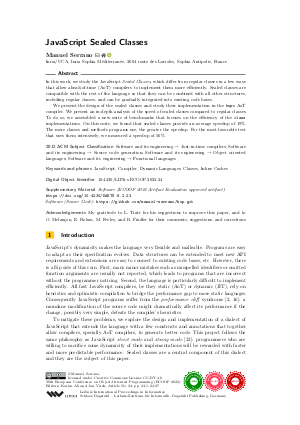LIPIcs.ECOOP.2022.24.pdf
- Filesize: 1.24 MB
- 27 pages

 Creative Commons Attribution 4.0 International license
Creative Commons Attribution 4.0 International license




Feedback for Dagstuhl Publishing